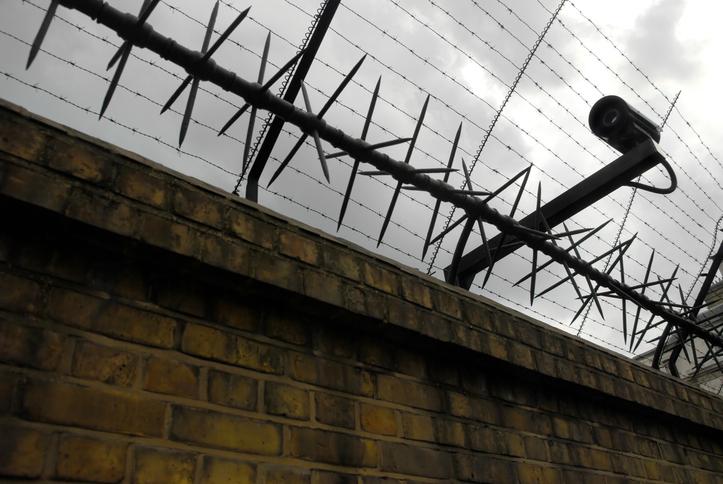Education provision in prisons across England and Wales is facing cuts, with some institutions losing up to a quarter of their funding, according to recent reports. As educators leave and programmes close, opportunities for learning and rehabilitation are shrinking at a time when it is most needed. This issue formed the backdrop to a recent teaching initiative inside HMP Pentonville.
Within the prison chapel, a parliamentary-style debate took place on the motion: “This House believes that prison education should be funded and treated as equivalent to mainstream education.” The debate was profound and informed; someone from National Prison Radio sitting nearby remarked that he wished he had recorded it. Only weeks earlier, several of the same participants had been in my classroom, hesitant to speak. Now they stood tall and articulate, making their cases with conviction.
It takes courage to stand in front of your peers and a room full of officers and external guests and speak, especially in an environment where vulnerability is rare and trust is hard-earned. To voice your opinion in such a setting is an act of resistance against the silence that so often defines life inside.
- How can we make HE more accessible for those with criminal convictions?
- Reflective skills are key in an unpredictable labour market
- Reflective practice 101
This event marked the culmination of a seven-week course in public speaking and communication, developed through a rare partnership between my university and prison education staff at HMP Pentonville. Designed to build self-esteem, confidence and authentic self-expression, the programme showed what can be achieved when universities extend their teaching beyond campus walls. In just a few weeks, nervous learners became persuasive speakers – proof that with the right structure and encouragement, confidence can be learned as a skill.
The classroom became a rare space where learners’ humanity outweighed their crime or potential sentence. The men who sat before me were not the defiant figures often imagined by the public, but individuals who had spent long nights questioning the paths that had led them there. What united them was a desire to understand themselves and to do better. Education, for them, was not simply about learning new skills but about rebuilding an identity, reclaiming dignity and imagining a future beyond confinement. Their willingness to confront their pasts reflected depth of introspection that few outside the prison walls see.
For the participants, the experience helped them believe in their capacity to grow. They spoke later of how the course had improved their ability to research, organise ideas and construct arguments – skills that will serve them in job interviews, workplaces, potential appeal hearings and day-to-day interactions. Learning alongside officers also helped to break down the barriers that normally define prison life.
Yet this success story sits in stark contrast with the wider reality. Across the prison system, opportunities for personal development are being lost as education contracts and staff turnover rise. These numbers represent real people who are trying to rebuild their confidence, purpose and prospects through learning.
This is precisely where university educators can play a vital role. By partnering with prisons, we can help fill part of this educational deficit, sharing expertise, developing new programmes and reaffirming education’s role as a tool for rehabilitation and reintegration. Collaborations like these deliver genuine social value. For educators, they challenge assumptions about who can learn, teach and thrive, offering a powerful corrective to stereotypes of prisoners as disengaged and detached. For learners, they provide the skills, confidence and sense of dignity needed to imagine a different future. Both parties stand to gain from this dialogue, which replaces preconception with understanding and shifts teaching into mutual learning.
Having taught inside Pentonville, I now want to bring these lessons back into university classrooms. The experience has reinforced my conviction that learning, whether behind bars or on campus, depends on trust, understanding and the belief that every student’s story matters. I intend to create more spaces where students are encouraged to speak with honesty, explore ideas that challenge them and understand education as a shared journey rather than a transaction. The openness I witnessed in Pentonville, the courage to learn despite constraint and the dignity found in self-expression have reshaped how I view the role of higher education. The curiosity and critical empathy I value in university students is part of the same human capacity that drives learning everywhere.
Even within restrictive settings, structured education reveals what universities can achieve when they connect learning with lived experience. The Pentonville debate proved this. The learners’ voices, measured, persuasive and full of hope, reminded me that education’s power lies not only in what is taught, but in what is shared.
Teaching in Pentonville reminded me that all learners, whether in prison or at university, need to feel safe before they can truly engage. People learn best when they know they can speak without fear of judgement. To bring this into my own teaching, I plan to include a brief reflective exercise in my modules: students spend a minute thinking about a time they learned through failure or discomfort, then share only the lesson, not the failure, with a partner. This simple activity helps build psychological safety and openness in a contained way.
Beyond this, I aim to continue to design more relational learning through small-group discussions and dialogue that connect ideas to lived experience and to one another. By modelling openness and understanding, I hope to humanise the classroom, showing that learning is a process of growth rather than performance. Finally, I want to extend learning beyond campus by partnering with community organisations, linking academic knowledge with social purpose and reminding students that education carries responsibility as well as opportunity.
For universities, engaging with prisons is part of a broader responsibility: to learn from the communities they serve and to prepare future leaders who understand society via its most overlooked corners. When universities step beyond their campuses to work with those on the margins, we do more than offer teaching. We bring insight, accountability and a greater sense of public purpose. These encounters show that higher education, at its best, is not only about producing knowledge but about shaping people with understanding and social consciousness.
Sobia Razzaq is senior lecturer in law and co-project lead for Elevating Futures at the University of Westminster.
If you would like advice and insight from academics and university staff delivered direct to your inbox each week, sign up for the Campus newsletter.




comment